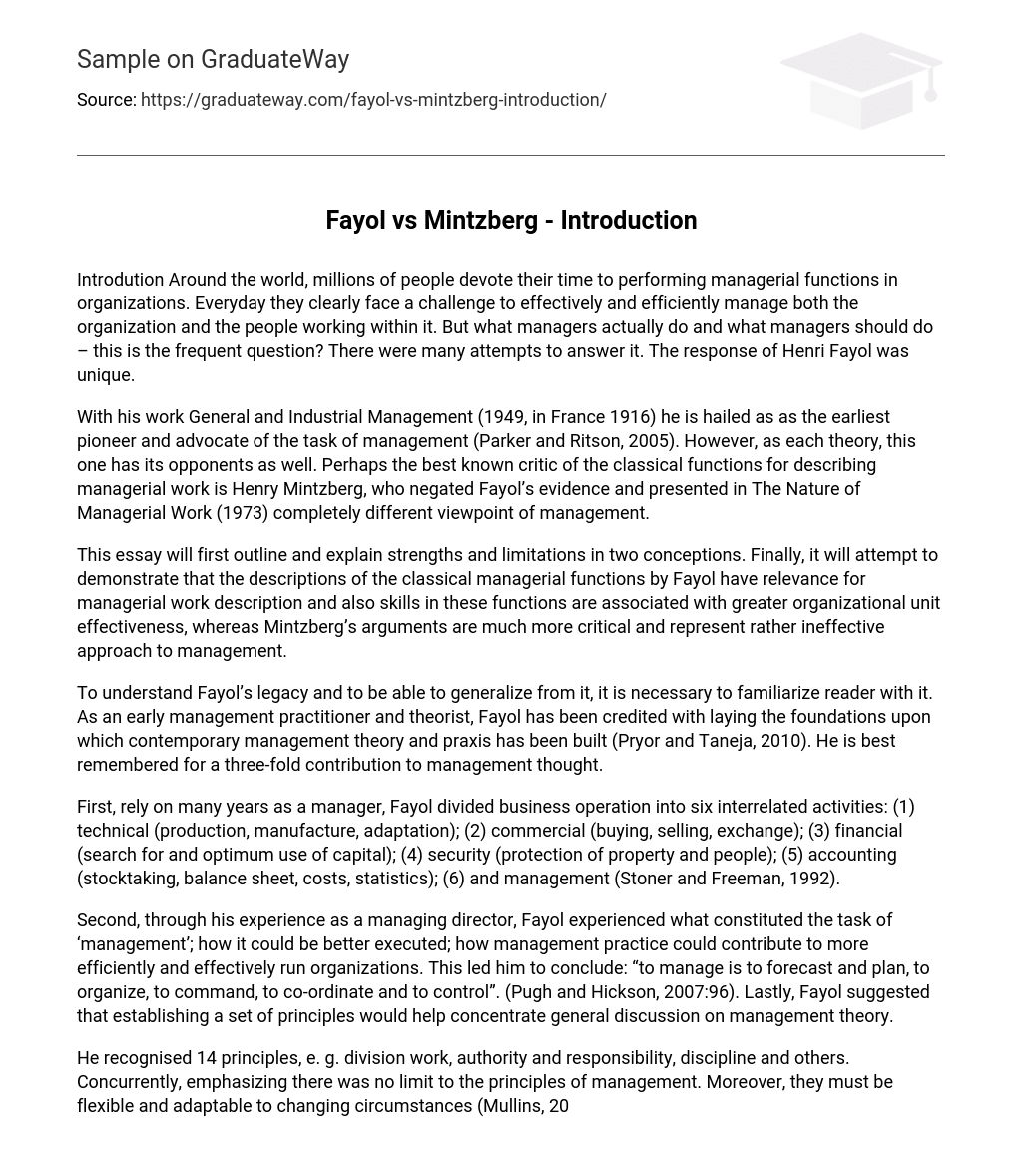Introdution Around the world, millions of people devote their time to performing managerial functions in organizations. Everyday they clearly face a challenge to effectively and efficiently manage both the organization and the people working within it. But what managers actually do and what managers should do – this is the frequent question? There were many attempts to answer it. The response of Henri Fayol was unique.
With his work General and Industrial Management (1949, in France 1916) he is hailed as as the earliest pioneer and advocate of the task of management (Parker and Ritson, 2005). However, as each theory, this one has its opponents as well. Perhaps the best known critic of the classical functions for describing managerial work is Henry Mintzberg, who negated Fayol’s evidence and presented in The Nature of Managerial Work (1973) completely different viewpoint of management.
This essay will first outline and explain strengths and limitations in two conceptions. Finally, it will attempt to demonstrate that the descriptions of the classical managerial functions by Fayol have relevance for managerial work description and also skills in these functions are associated with greater organizational unit effectiveness, whereas Mintzberg’s arguments are much more critical and represent rather ineffective approach to management.
To understand Fayol’s legacy and to be able to generalize from it, it is necessary to familiarize reader with it. As an early management practitioner and theorist, Fayol has been credited with laying the foundations upon which contemporary management theory and praxis has been built (Pryor and Taneja, 2010). He is best remembered for a three-fold contribution to management thought.
First, rely on many years as a manager, Fayol divided business operation into six interrelated activities: (1) technical (production, manufacture, adaptation); (2) commercial (buying, selling, exchange); (3) financial (search for and optimum use of capital); (4) security (protection of property and people); (5) accounting (stocktaking, balance sheet, costs, statistics); (6) and management (Stoner and Freeman, 1992).
Second, through his experience as a managing director, Fayol experienced what constituted the task of ‘management’; how it could be better executed; how management practice could contribute to more efficiently and effectively run organizations. This led him to conclude: “to manage is to forecast and plan, to organize, to command, to co-ordinate and to control”. (Pugh and Hickson, 2007:96). Lastly, Fayol suggested that establishing a set of principles would help concentrate general discussion on management theory.
He recognised 14 principles, e. g. division work, authority and responsibility, discipline and others. Concurrently, emphasizing there was no limit to the principles of management. Moreover, they must be flexible and adaptable to changing circumstances (Mullins, 2007). To some, Fayol’s conception of management was the ‘first complete and comprehensive theory of management which could be applied to all endeavors’ (George, 1972, p. 114).
Although the years go, Fayol’s definition of management is the most frequently cited in today’s world. Many later writers claim that the bedrock of his theory is its applicability to a variety of managerial and organizational contexts (Rees and Porter, 2001), and it spans essential aspects of each manager’s job, albeit in varying degrees. Let’s focus on particular five functions of management and their application to contemporary practices (McLean, 2011). To forecast and plan. According to Fayol





